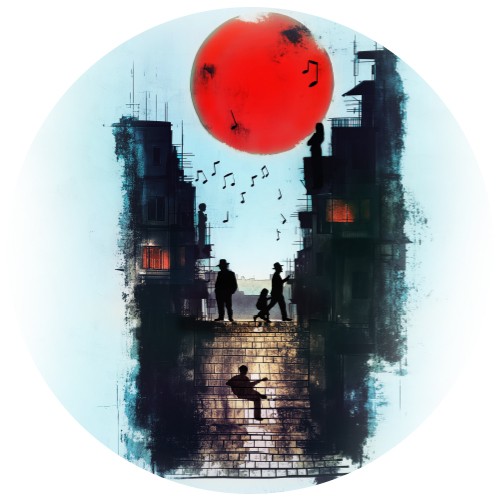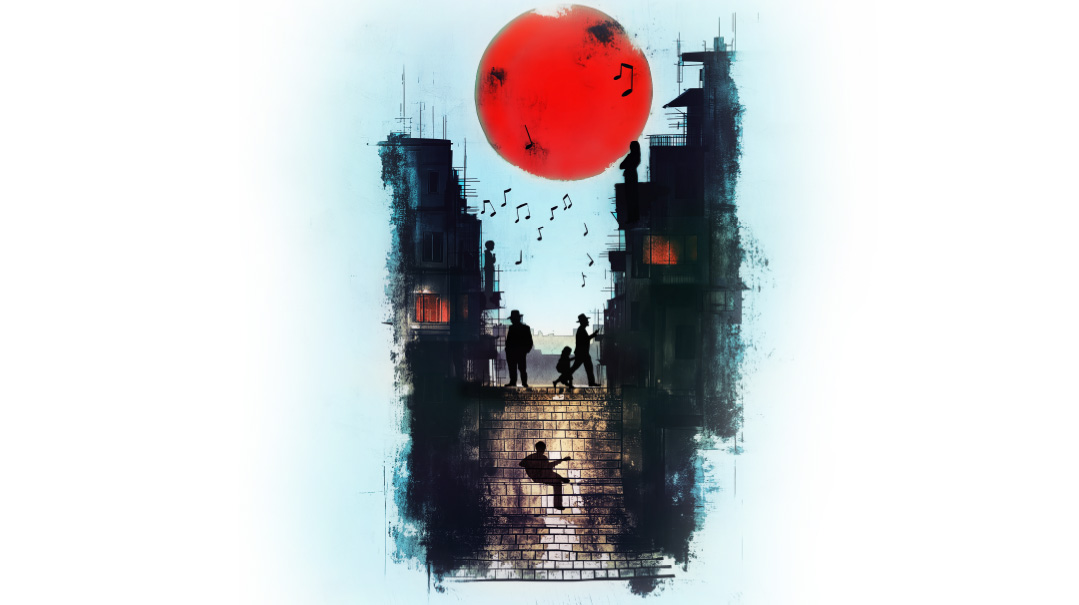Face the Music: Chapter 1

“Ima, can’t we do something nicer?” Elisheva wailed. “This looks dysfunctional”

“T
amar, Elisheva, it’s time for Shalosh Seudos,” Marissa said.
“Ready to wash?”
“Well, what’s there to eat?” Tamar countered.
Yaakov stole a glance at Marissa. I’m not doing this, she telegraphed in silent but effective spousal sign language. He gave her a sympathetic nod.
“The usual,” she told Tamar. “Shalosh Seudos stuff.”
Back in seminary, Rebbetzin Grossinger had taught Marissa that Shalosh Seudos was the most spiritual of all the Shabbos meals.
“It’s when you feel the relationship with Hashem most intensely,” she had said. “The culmination of a full night and day of shutting out the rest of the world and bonding!
“If you think about it, ladies,” she said, lowering her voice dramatically, “it makes sense that it’s the meal where the food matters least. By the time you get to the last hours of Shabbos, you don’t need the food anymore to have oneg Shabbos. It’s all about the singing, ladies. The closeness, the Yedid Nefesh.”
Marissa found herself thinking about Rebbetzin Grossinger’s glowing picture of Shalosh Seudos — and a lot of frum life, to be honest — pretty often these days. Here they were at the Shalosh Seudos table, with the setting sun painting the stone buildings behind them the perfect shade of rose-gold, and that fragrant Jerusalem breeze tickling at the curtains. True to her dreams, she had a beautiful family and Shabbos table of her own. True to Rebbetzin Grossinger’s prescription, the food on the table was minimal — some matzah, containers of matbuchah and techinah, freshly cut vegetables, and a tray of quick brownies.
But Tamar and Elisheva put on their “suffering faces,” as Yaakov called it, when they saw the offerings.
“Ima, can’t we do something nicer?” Elisheva wailed. “This looks dysfunctional.”
Oops! We could not locate your form.



